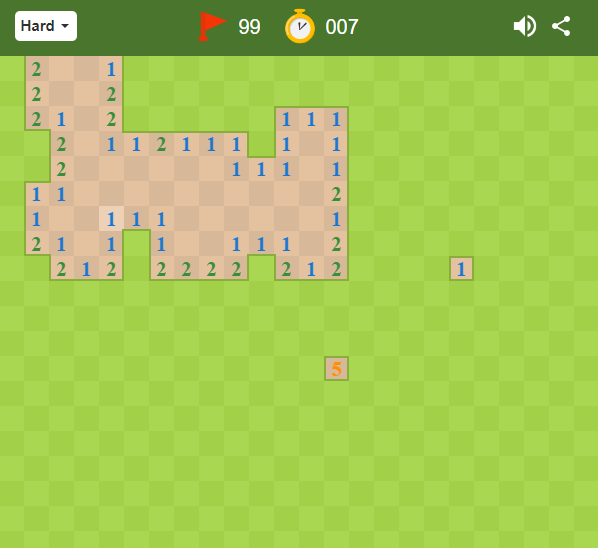If you’re a fan of casual online games, chances are you’ve stumbled upon Google Minesweeper. This classic game has been entertaining internet users for decades, challenging them to uncover hidden mines on a grid without detonating any of them.
Understanding Minesweeper
The game typically presents players with a grid of covered squares. Beneath some of these squares are hidden mines, while others are safe. The objective is to uncover all the safe squares without triggering any mines. Players must rely on logic and deduction to strategically uncover squares, using numbered clues to identify nearby mines.
The Role of Luck
Now, does luck play a role in Google Minesweeper? To some extent, yes. The initial grid layout is randomized with each new game, meaning the distribution of mines varies. Consequently, luck influences the ease or difficulty of the game based on the arrangement of mines. Players may encounter scenarios where certain squares require guesswork due to insufficient clues, relying on luck to avoid mines.
Strategy vs. Chance
While luck affects the initial grid layout, Minesweeper is predominantly a game of strategy. Experienced players employ tactics such as flagging potential mine locations, identifying safe patterns, and minimizing guesswork. By analyzing numbered clues and applying logical deductions, players can systematically uncover squares with precision, minimizing reliance on luck.
Skill Development
As players gain experience and sharpen their Minesweeper skills, they rely less on luck and more on strategic decision-making. Practice enhances pattern recognition, spatial reasoning, and risk assessment, empowering players to tackle increasingly challenging grids with confidence. With mastery comes the ability to consistently achieve high scores and complete grids without relying on luck.
Competitive Aspect
In the Minesweeper, luck plays a minimal role. Skilled players participate in timed competitions where success hinges on strategic efficiency rather than luck. These competitions emphasize speed, accuracy, and consistency, rewarding players who exhibit superior Minesweeper proficiency honed through deliberate practice.
While luck influences the initial grid layout in Google Minesweeper, the game primarily revolves around strategy and skill. While beginners may perceive luck as a significant factor, seasoned players rely on logic, deduction, and practice to navigate the grid successfully. Ultimately, Minesweeper offers a balance of challenge and enjoyment, rewarding players who master its intricacies through strategic prowess rather than sheer luck.
